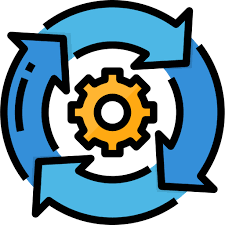Northern Arizona University
Ashish Amresh is an Associate Professor in Computer Science and conducts research in the development of Serious Games and previously he led the Computer Gaming curriculum initiatives at Arizona State University, where he founded the Computer Gaming Certificate, Camp Game and UTBC summer programs. He was the founding program chair for the Simulation Science Games and Animation program at Embry Riddle Aeronautical University and his industry pursuits included working for Ronin Entertainment as a Graphics Software Engineer known for Star Wars: Force Commander and Bruce Lee Quest of the Dragon games. He is the author of Unreal Game Development, a popular book used for teaching game development skills for high school students. He has given numerous talks on using games in the class room for enhancing math and science learning. He is currently researching the development of software tools to improve game based learning outcomes. He is the PI for the NSF BCSER project and Co-PI for the NSF CS4ALL RPP project.
Contact: ashish.amersh@nau.edu
Jeffrey Hovermill is an Associate Professor of Mathematics Education at Northern Arizona University. Dr. Hovermill serves as Research Coordinator for Project Let's Talk Code.
Contact: Jeffrey.Hovermill@nau.edu
Wei is a postdoc fellow at Northern Arizona University. She has focused on promoting Computer Science (CS) education in K-12 using innovative technologies and making CS education equitable and accessible to all. Her research efforts are mainly to understand students’ problem-solving behaviors in the context of CS Education. In K-12 education, computing concepts are complex for young learners to understand directly. However, with the facilitation of computational thinking practice, students can understand these concepts in-depth. While exploring students’ computing activities, She found those students struggled and frustrated. Exploring what made them struggle and how teachers could help them effectively become a high motivation for her.
Contact: wei.yan@nau.edu
Hi, my name is Aaron Santiago. I am a soon-to-be grad with a Bachelor of Science in Computer Science (May 2024). I live in Arizona, and I have a passion for learning and challenging myself. I'm currently learning C and am gaining certifications. As for my future, I hope to one day work as a Software Engineer or Cybersecurity Analyst and work with a diverse team.
An undergraduate Computer Science major with goals to design and create better technology solutions for healthcare software and education! As I am studying, I have had a variety of experiences that has helped me with my journey such as working as a Behavioral Technician and a Preschool Teacher.
Veronica Cardenas is a Computer Science undergraduate student at Northern Arizona University. She is currently the Vice President of the Women Who Compute academic organization on campus. After graduation in 2024, she hopes to gain experience in software engineering and development.
Navajo Technical University
Peter Romine is currently working as an Associate Professor of Electrical Engineering at Navajo Technical University. He is the PI for the NSF CS4ALL RPP project and is actively building capacity for engineering, CS, and STEM at NTU and recruiting Native American students.
Instructor of Electrical Engineering
Associate Professor of Mathematics
Computer Science Alliance
Paige Prescott is currently working as the Co-founder and Executive Director of the Computer Science Alliance. She is the Co-PI for the NSF CS4ALL RPP project.
Navajo Nation Human Research Review Board
Coconino County Education Service Agency
Superintendent
Research Coordinator
Kaczmarczyk Consulting
Dr. Lisa Kaczmarczyk is the owner of a program evaluation consulting business that specializes in computer science and engineering education. A computer scientist and educator herself, with an interdisciplinary background, Dr. Kaczmarczyk has extensive experience evaluating NSF funded STEM projects at the primary, secondary, and post-secondary levels, and has served as project co-PI. Her expertise is in interdisciplinary computing and engineering, outreach to women and girls, and computing for social good.
Collaborators
Funding
The project is funded by the National Science Foundation’s Computer Science for All (CS4ALL) Award # 2031505, The Building Capacity in STEM Education Research (BCSER) Award # 2246200 program and the APS Foundation.




